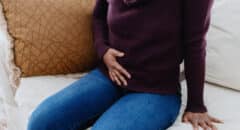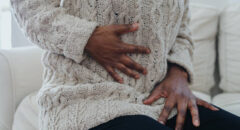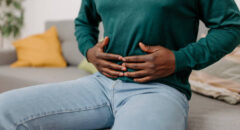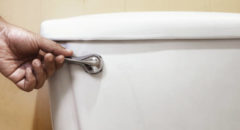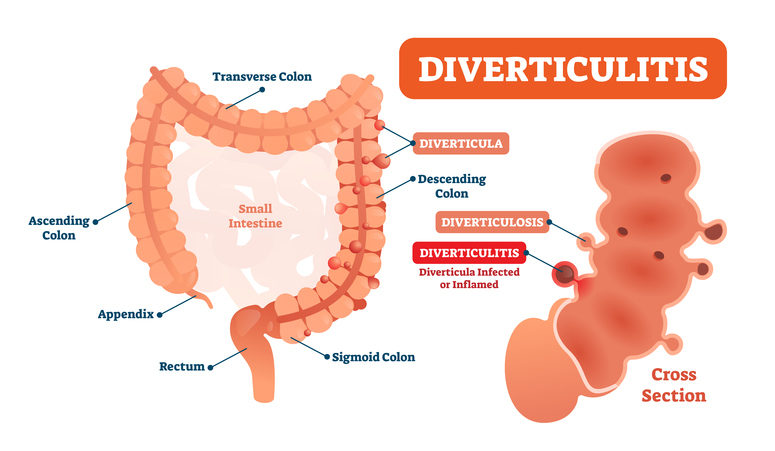
Adhering to a high-fiber diet is one key to keeping diverticular disease at bay. According to research or other evidence, the following self-care steps may help you manage this digestion disorder:
What You Need To Know:
- Recognize the warning signs
Seek immediate medical attention if you develop symptoms such as painful abdominal cramping, fever, and nausea - Diet right
Help prevent the disease by eating a high-vegetable, high-fiber, and low-meat diet - Get moving
Start a regular program of physical activity, such as jogging, to help prevent symptomatic diverticular disease
These recommendations are not comprehensive and are not intended to replace the advice of your doctor or pharmacist. Continue reading the full diverticular disease article for more in-depth, fully-referenced information on medicines, vitamins, herbs, and dietary and lifestyle changes that may be helpful.
Dietary changes that may be helpful
Dietary factors influence the frequency and severity of diverticular disease recurrences. A diet high in fiber has been shown to be protective against diverticular disease. One study of food intake revealed a 50% increase in incidence of diverticular disease in people eating a diet high in meat and low in vegetables relative to those eating a high-vegetable and low-meat diet. In addition to helping prevent the disease, a high-fiber diet may also be useful as a treatment for diverticular disease.
Lifestyle changes that may be helpful
Obesity may be associated with increased severity of diverticular disease. Studies have yet to be conducted to determine if weight loss decreases signs and symptoms of diverticular disease in patients who are overweight.
Physical activity, specifically jogging or running, has been reported to protect against symptomatic diverticular disease. While the reason for its positive effect is not known, exercise is associated with reduced symptoms of a variety of other diseases of the colon.
Other therapies
For mild conditions, healthcare practitioners typically recommend adequate fluid intake and a high-fiber diet. Some severe cases might require a liquid diet or surgical removal of the affected portion of the colon. Giant diverticula always require surgery.
Vitamins that may be helpful
In people with diverticular disease, a fiber supplement may improve constipation. The results of double-blind of fiber supplementation for diverticular disease have been mixed. One study demonstrated a beneficial effect of...
...fiber supplementation in people who suffered from abdominal pain and pain with bowel movements; whereas a second study indicated no improvement in these symptoms following fiber supplementation. Nevertheless, long-term fiber supplementation may protect against the complications of diverticular disease.
Glucomannan is a water-soluble dietary fiber that is derived from konjac root (Amorphophallus konjac). A preliminary clinical trial found that approximately one-third to one half of people with diverticular disease had reduced symptoms of diverticular disease after taking glucommanan. The amount of glucomannan shown to be effective as a laxative is 3–4 grams per day.
Are there any side effects or interactions?
Refer to the individual supplement for information about any side effects or interactions.
Herbs that may be helpful
A preliminary trial of the herb psyllium supports the use of this type of fiber in relieving the symptoms associated with diverticular disease and constipation.
Are there any side effects or interactions?
Refer to the individual herb for information about any side effects or interactions.



